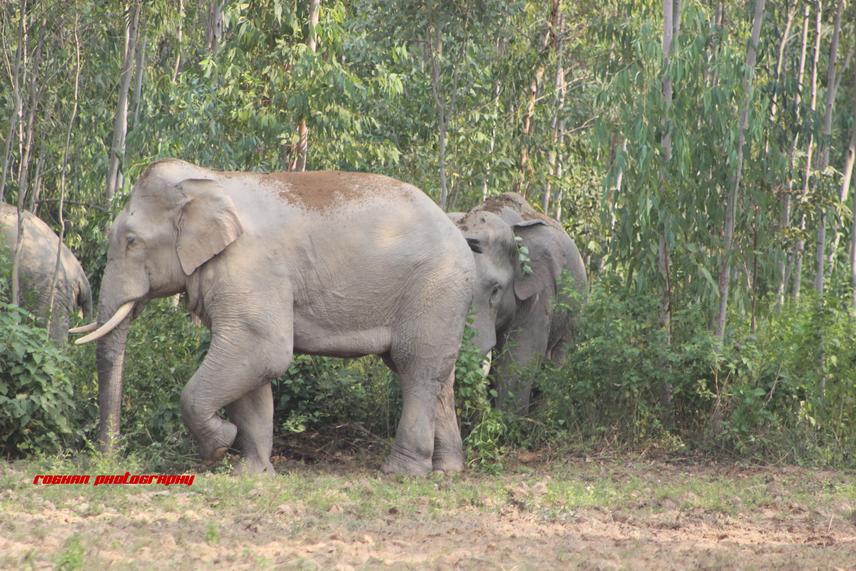Roshan Kumar Thakur
Other projects
10 Apr 2015
Geospatial Modelling of Walk Trails of Asian Elephant as a Tool for Mitigating Human Elephant Conflicts in Central Nepal
19 Apr 2017
Using Bee as Eco-Deterrent for Crop Raiding Elephant: Testing Effectiveness, Efficiency as a Tool for Human Elephant Conflict (HEC) Mitigation in Central Nepal
17 Sep 2018
Living with Giants: Addressing the Prequels of Elephant Conservation in Central Nepal
Communities sharing spaces with wildlife are the most affected dimension of conservation work. Yet, they are often neglected or less-desired stakeholders in decision-making processes. The main wildlife conservation stakeholders allocate a small percentage of budgets to uplift the standard of life of communities that share spaces with wildlife. Various wildlife-friendly income generation activities and training may produce additional income for community members, decreasing their dependency on forest resources and reducing interference in wildlife habitat.

Elephants during migration. ©Rohan Photography.
This project focuses on sustainable conservation, particularly for communities coexisting with elephants. It aims to provide training in culinary skills, animal husbandry, modern agricultural techniques, forest-based enterprise training and horticulture to these communities. Subsequently, additional support will be offered to help them set up food stalls, agricultural farms, nurseries and other ventures for immediate income generation. Additionally, engaging in ecotourism and forest-based enterprise can foster a deeper appreciation for the wildlife in their vicinity.
The project will create a long-term field research centre in Pathlaiya dedicated to elephant research and conservation work. The research centre will act as an umbrella office for different project activities. It will have all functionalities, including research, conservation, fundraising, office liaison, a community knowledge-sharing centre, and volunteer workstations. The research centre will also act as an R&D lab to create night-illuminated wildlife signage, human-wildlife conflict mitigation electronic devices, and be a home to other community-driven activities. Overall, the research centre will be developed as a hands-on learning ground for fresh national or international wildlife graduates to channel and promote their wildlife conservation passion and potential.
All other project activities will be processed from here to sub-field stations located in different clusters. Homestays and tree houses will be created and institutionalised to promote ecotourism; various real-life skills training sessions will be conducted like computer training, bicycle repair, sewing, and culinary skills; and forest-based enterprise development training will be held to reduce pressure on adjoining forests. Additional support (long-term mentorship, networking etc.), will also be provided to the community post-training to ensure their success in the region.